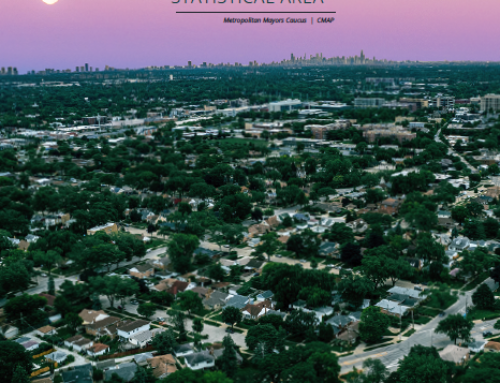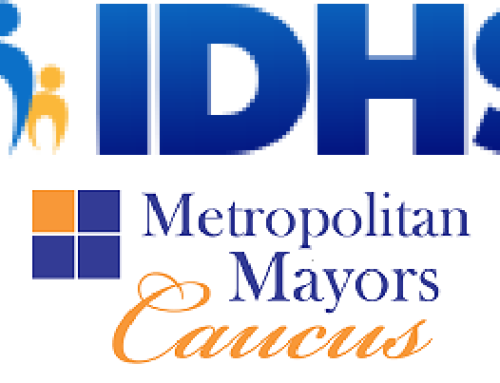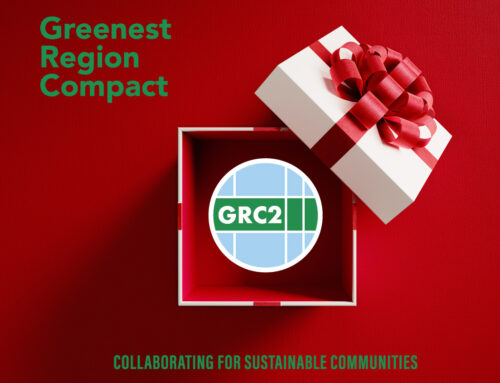 CHICAGO (March 11, 2024) – The Caucus held a recent Environment Committee meeting on the topic of Inflation Reduction Act (IRA) direct pay, rebates, and incentives. The IRA is providing historic investments in clean energy and sustainability projects.
CHICAGO (March 11, 2024) – The Caucus held a recent Environment Committee meeting on the topic of Inflation Reduction Act (IRA) direct pay, rebates, and incentives. The IRA is providing historic investments in clean energy and sustainability projects.
For the first time, tax-exempt entities like local governments have the opportunity to receive the monetary benefit of tax credits directly from the federal government. These tax credits for local governments are commonly known as “direct pay” or “elective pay.” “The ability to directly take advantage of tax credits changes the way that cities can approach climate change mitigation and resilience projects and will make more carbon reduction and resilience strategies cost-effective,” according to “Cities Advancing Climate Action: Unlocking the Potential of the Inflation Reduction Act,” a report written by the U.S. Conference of Mayors, the Center for Climate and Energy Solutions (C2ES), and AECOM.
However, receiving elective pay tax credits does require municipal finance and legal capacity, which speakers addressed during this Environment Committee meeting.
At the meeting, the Committee heard from experts at the National League of Cities, the U.S. Conference of Mayors and AECOM, who are creating pathways for local governments to access these resources. Local government projects that could benefit from direct pay were shared, including an example of what the City of Chicago is doing.
One example of a direct pay tax credit that local governments can receive is the Commercial Clean Vehicle Tax Credit. Communities or businesses that purchase an EV may qualify for up to $7,500 for vehicles under 14,000 pounds and $40,000 for vehicles over that weight. There is no limit on the number of credits that local governments can claim.
Consumer Tax Credits and Rebates
The IRA also contains abundant tax credits and rebates for individuals and businesses, which a speaker from the Citizens Utility Board (CUB) discussed. IRA tax credits are currently available to consumers through 2032, which makes the upcoming years some of the “best times in history for home energy improvements,” according to CUB’s Guide to the Inflation Reduction Act. Some of these tax credits include 30% of the cost of qualified projects for up to $1,200 annually, including:
- Up to $150 for home energy audits
- Up to $500 for efficient exterior doors ($250 per door)
- Up to $600 for efficient exterior windows or skylights
- Up to $600 for qualifying efficient central A/C, electric panel upgrades, and water heaters/boilers
There is an additional one-time tax credit of up to $2,000 for upgrading to heat pump technology, including air source heat pumps or heat pump water heaters.
In addition to tax credits, the IRA includes rebates to help low and moderate-income (80%-150% AMI) residents save money on home improvements that can lower their energy bills. The Illinois Environmental Protection Agency Office of Energy will be setting up the rebate program for the state in the future.
IRA Resources
To view more Inflation Reduction Act resources from the last Environment Committee meeting, please see below.
Presentations:
- Recording of meeting
- Inflation Reduction Act: Incentives, Rebates and Direct Pay – speakers from National League of Cities (NLC), the United States Conference of Mayors, and AECOM
- Federal Direct Pay and the City of Chicago – Jared Policicchio, Deputy Chief Sustainability Officer and Deputy Commissioner, City of Chicago
- IRA Customer-Facing Tax Credits and Rebates – Joey Lee, Carbon Free Buildings Coordinator, Citizens Utility Board (CUB)
Resources for Local Governments:
- Cities Advancing Climate Action: Unlocking the Potential of the Inflation Reduction Act (IRA) – Alliance for a Sustainable Future, a joint effort by the U.S. Conference of Mayors, the Center for Climate and Energy Solutions (C2ES), and AECOM, July 2023
- IRS Elective Pay Overview
- IRS Pre-Registration Portal for elective pay, or direct pay
- Federal Funding Sources for Municipal Sustainability and Climate Action – National League of Cities article, April 13, 2023
- How Local Governments Can Use Direct Pay on Clean Energy Projects – National League of Cities article, Dec. 22, 2022
- Local Infrastructure Hub – includes bootcamps focused on different funding opportunities, such as elective pay, which is also known as direct pay
- Catalyzing Local Clean Energy: A Roadmap for Maximizing Inflation Reduction Act Opportunities and Community Benefits – Local Infrastructure Hub, September 2023
- Cities Advancing Climate Action: Federal Funds for Local Impact – Alliance for a Sustainable Future, January 2022
Resources for Your Residents:
- EPA Federal Tax Credits for Energy Efficiency
- CUB’s Guide to the Inflation Reduction Act – December 2022
- Rewiring America IRA Savings Calculator: How much money can you get with the Inflation Reduction Act
Other Meeting Materials:




